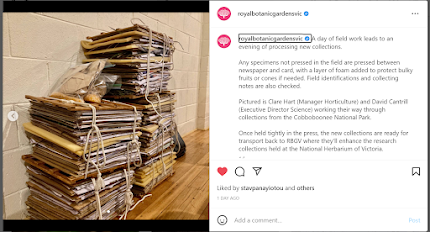A week or so ago I blogged about how I believed that desktop linux was never going to be a thing.
Well, I still stand by that argument but this morning I read an article that made the argument that as windows becomes more and more reliant on the cloud, linux was the only way to go if you needed a standalone desktop operating system.
And that got me thinking.
Over the five years I've worked on the Dow's documentation project there's been a bit of drift and increasing dependence on cloud based services, and while it's possible to revert to the original 2017 methodology when needed, it's definitely the case that it's easier to stick with the 2022 cloud based methodology if at all possible.
Let's say I was to start a new documentation and recording project, and it was based somewhere without good internet. And while it's true that the 2022 methodology can be run over a decent 4G connection, it's certainly the case that there's plenty of places in rural and regional Australia where 4G coverage is less than stellar.
So, as a thought experiment, could you run the original 2017 methodology on Kubuntu?
- Much of the recording is done via spreadsheets. Libre Office Calc is highly compatible with excel as I found when I had to use a machine without excel when I dropped coffee on my work machine
- Firefox is perfectly compatible with OneDrive meaning that data can be uploaded at the end of the working day
- The OneNote web clipper works well with Firefox, meaning that if one had minimal internet it would still be possible to research and document objects
- And of course there is no problem saving a copy of the data to external drive of some sort as a work in progress backup during the working day.

No comments:
Post a Comment